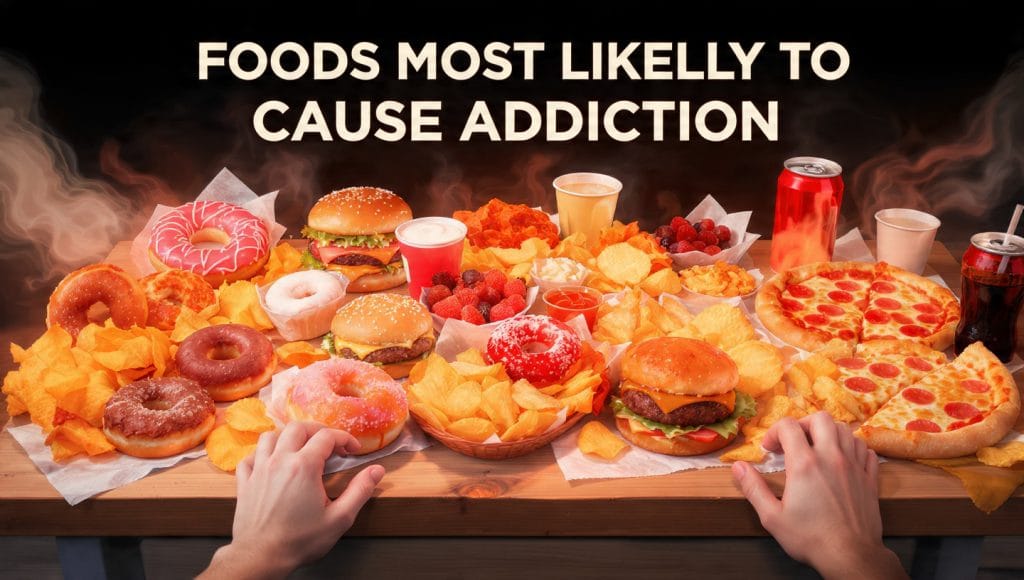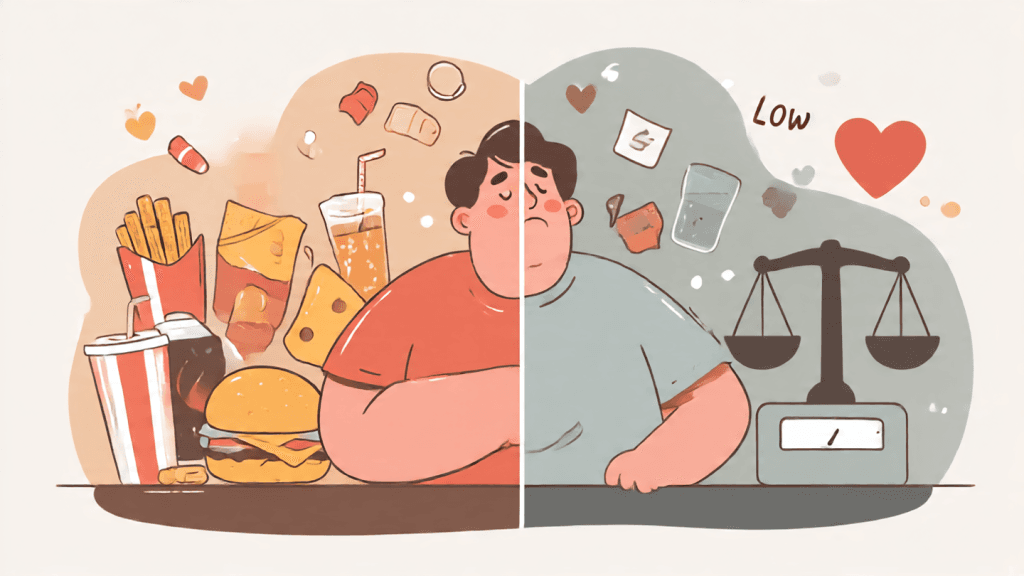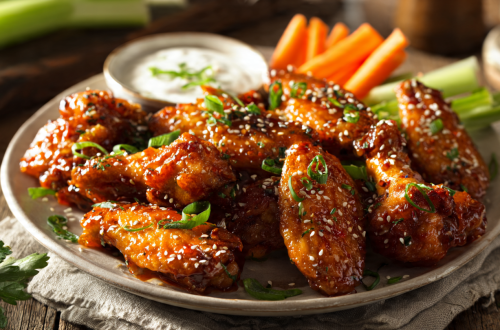What Is Food Addiction?
Food addiction is more than just loving food—it’s a condition where you feel an uncontrollable urge to eat certain types of food, even when you’re not hungry. High-sugar, high-fat, and processed foods can hijack your brain’s reward system, releasing dopamine and creating a cycle of cravings and overeating.
Like other addictions, food addiction isn’t about willpower—it’s a complex mix of emotional, psychological, and biological factors. Understanding it is the first step toward breaking free and building a healthier relationship with food.
1. Understanding the Science Behind Food Cravings
Certain foods are engineered to be “hyper-palatable.” Sugar, salt, and fat trigger the brain’s reward center, similar to addictive substances. Over time, your brain starts craving these foods repeatedly, leading to compulsive eating habits that are difficult to control.
2. Common Signs of Food Addiction
Some signs you might be struggling with food addiction include:
- Constant cravings for specific foods
- Eating even when full or not hungry
- Feeling guilt or shame after eating
- Hiding food or eating in secret
- Repeated failed attempts to cut back
Recognizing these patterns is key to addressing the problem early.
3. Foods Most Likely to Cause Addiction
While any food can become a source of compulsive eating, some are more likely to trigger addiction:
- Processed snacks and chips
- Sugary desserts like cakes and candies
- Fast food meals high in fat and salt
- Refined carbs such as white bread or pastries
Being aware of these “trigger foods” can help you make better choices.

4. Emotional Eating vs. Food Addiction
It’s important to distinguish between emotional eating and true food addiction. Emotional eating occurs during stress or sadness, but food addiction involves compulsive behavior, loss of control, and intense cravings that persist even when you want to stop.
5. Impact on Physical Health
Food addiction can have serious consequences:
- Weight gain and obesity
- Increased risk of diabetes
- Heart disease and high blood pressure
- Digestive problems
Overeating trigger foods regularly strains the body and may lead to long-term health issues.

6. Impact on Mental Health
The effects aren’t just physical—food addiction affects your mind as well:
- Anxiety and depression
- Low self-esteem
- Emotional distress from loss of control over eating
- Social isolation due to shame around eating habits
7. How to Identify If You’re Addicted

A simple self-checklist can help:
- Do you eat even when not hungry?
- Do you often crave the same foods?
- Do you feel guilt after eating certain foods?
- Do you hide your eating habits from others?
Answering “yes” to multiple questions may indicate food addiction.
8. Steps to Overcome Food Addiction
Breaking free is possible with consistent effort:
- Practice mindful eating—pay attention to hunger cues
- Replace trigger foods with healthier alternatives
- Seek professional help or therapy if needed
- Join support groups for guidance and accountability
- Set realistic meal and snack goals
9. Building a Healthy Relationship With Food
The goal isn’t perfection—it’s balance. Learn to enjoy food without guilt, plan meals, and treat indulgences as occasional rewards rather than a daily habit.

10. The Importance of Self-Compassion
Overcoming food addiction takes time. Celebrate small victories, avoid negative self-talk, and remember that relapse doesn’t mean failure. Compassion toward yourself is an essential part of creating a lasting, healthy relationship with food.
Conclusion
Food addiction is a real condition affecting millions, but understanding it is the first step toward freedom. By recognizing cravings, identifying trigger foods, and taking conscious steps toward mindful eating, you can regain control over your health, both physically and mentally.




